+ Filter
 Loading...
Loading...

MET & EGFR
Engineered Antibody Products
Antibody-like Scaffold Protein Products
Glyco-Engineering Antibody Products
Tetramer Products
Antibody Magnetic Beads
Cancer Stem Cell Biomarker Specific Antibody Products
AbPlus
Recombinant Antibody Products
Functional Antibody Products
Formats
Research Area
Anti-MET & EGFR Recombinant Antibody Products
- AbPlus™ Anti-EGFR Magnetic Beads (pSEX81-6) (VS-0424-XY84)
-
- Target: EGFR
- Target Species: Human
- Application: IP, Protein Purification
Can't find the products you're looking for? Try to filter in the left sidebar.Filter By Tag
More Infomation
Our customer service representatives are available 24 hours a day, from Monday to Sunday. Contact Us
For Research Use Only. Not For Clinical Use.
This gene encodes a member of the receptor tyrosine kinase family of proteins and the product of the proto-oncogene MET. The encoded preproprotein is proteolytically processed to generate alpha and beta subunits that are linked via disulfide bonds to form the mature receptor. Further processing of the beta subunit results in the formation of the M10 peptide, which has been shown to reduce lung fibrosis. Binding of its ligand, hepatocyte growth factor, induces dimerization and activation of the receptor, which plays a role in cellular survival, embryogenesis, and cellular migration and invasion. Mutations in this gene are associated with papillary renal cell carcinoma, hepatocellular carcinoma, and various head and neck cancers. Amplification and overexpression of this gene are also associated with multiple human cancers. [provided by RefSeq, May 2016]

EGFR encodes a receptor tyrosine kinase that is involved in the regulation of cell growth, survival, and differentiation. It is activated by binding to its ligands, such as epidermal growth factor (EGF), and mediates downstream signaling pathways that control cellular processes like proliferation, migration, and differentiation. EGFR is critical in normal development, wound healing, and tissue repair. However, mutations or overexpression of EGFR are associated with various cancers, including non-small cell lung cancer (NSCLC), making EGFR a target for cancer therapies, including monoclonal antibodies and tyrosine kinase inhibitors.


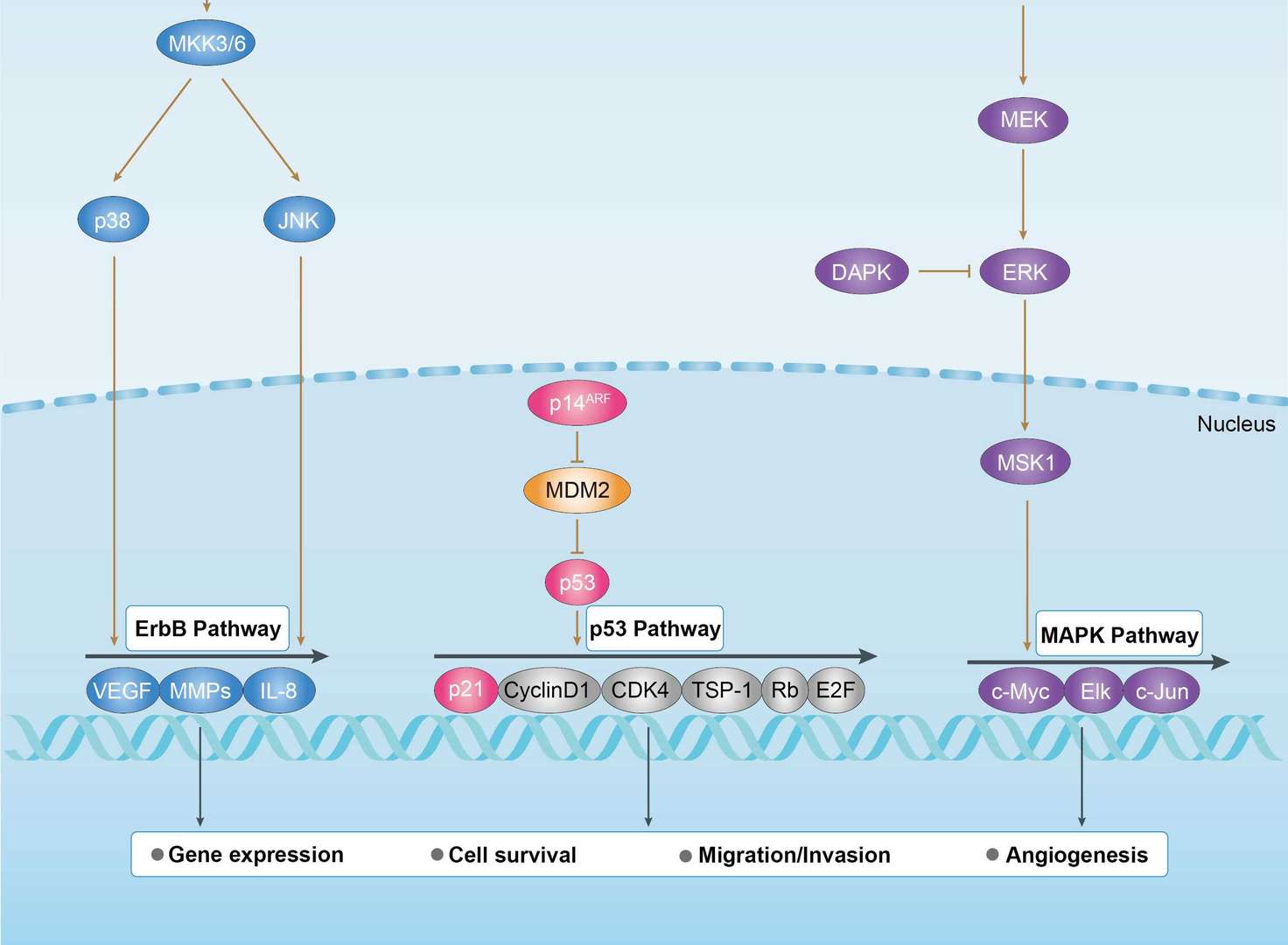 Bladder Cancer
Bladder Cancer
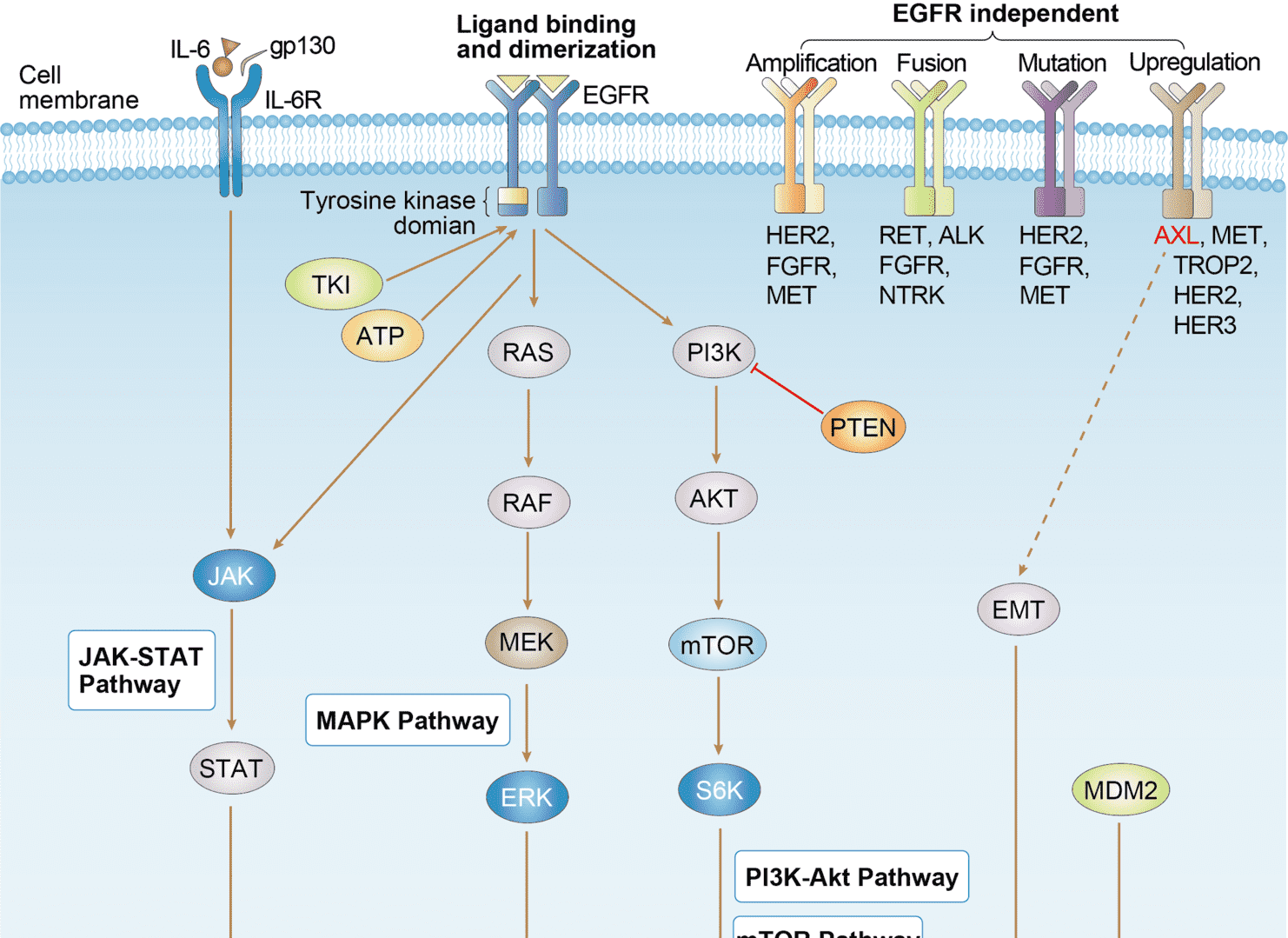 EGFR Tyrosine Kinase Inhibitor Resistance
EGFR Tyrosine Kinase Inhibitor Resistance
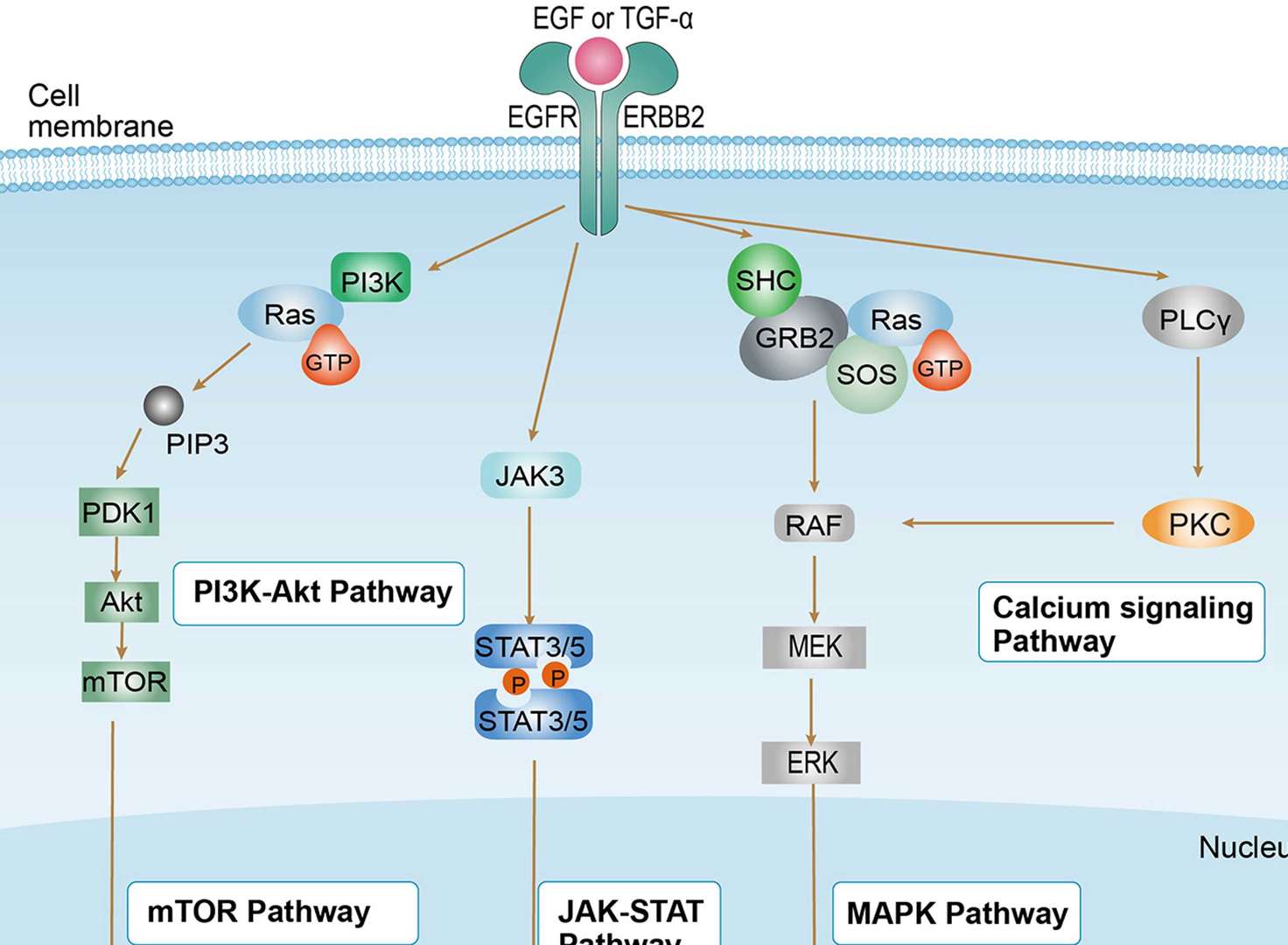 Non-small Cell Lung Cancer
Non-small Cell Lung Cancer
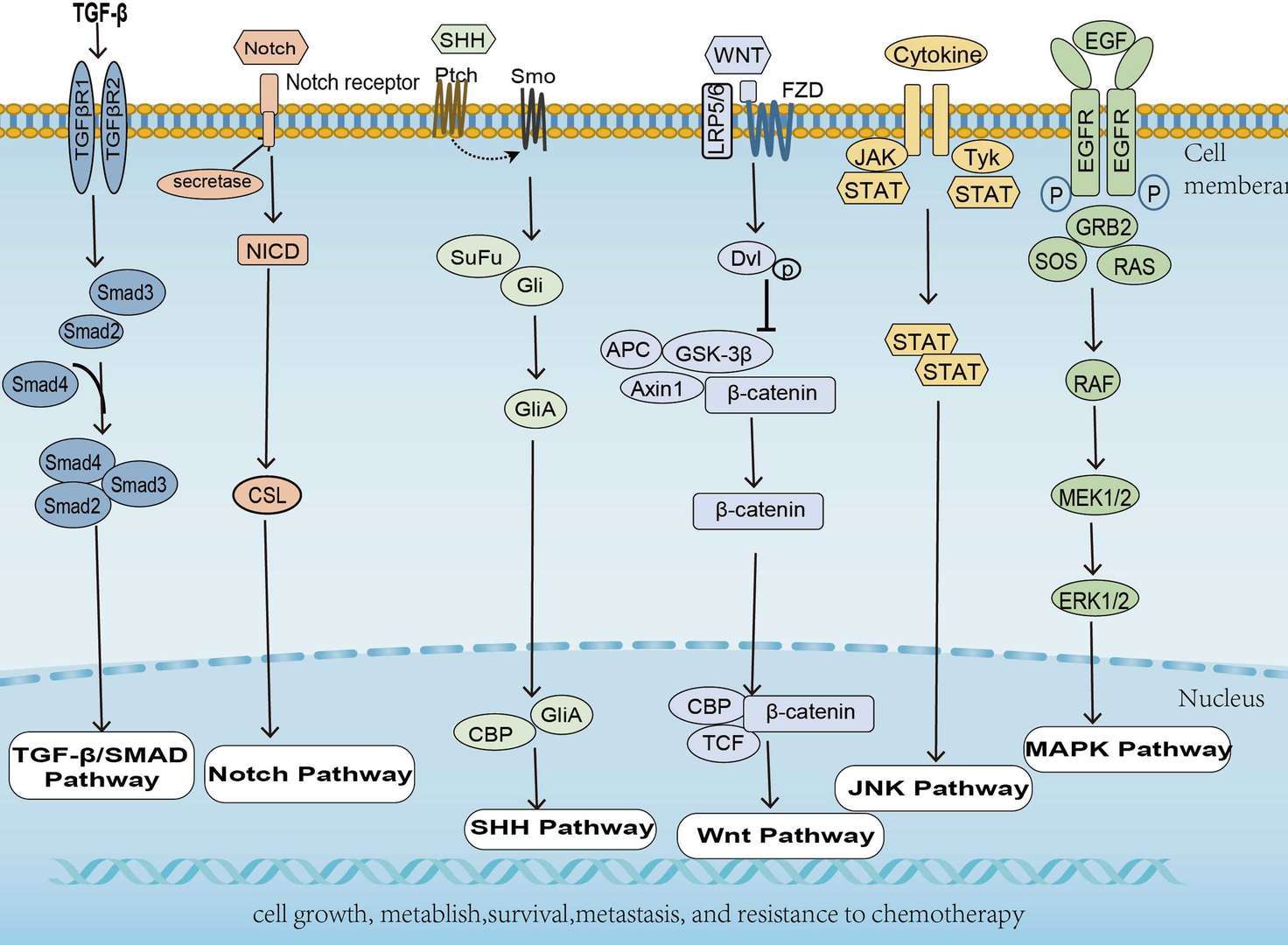 Pancreatic Cancer
Pancreatic Cancer
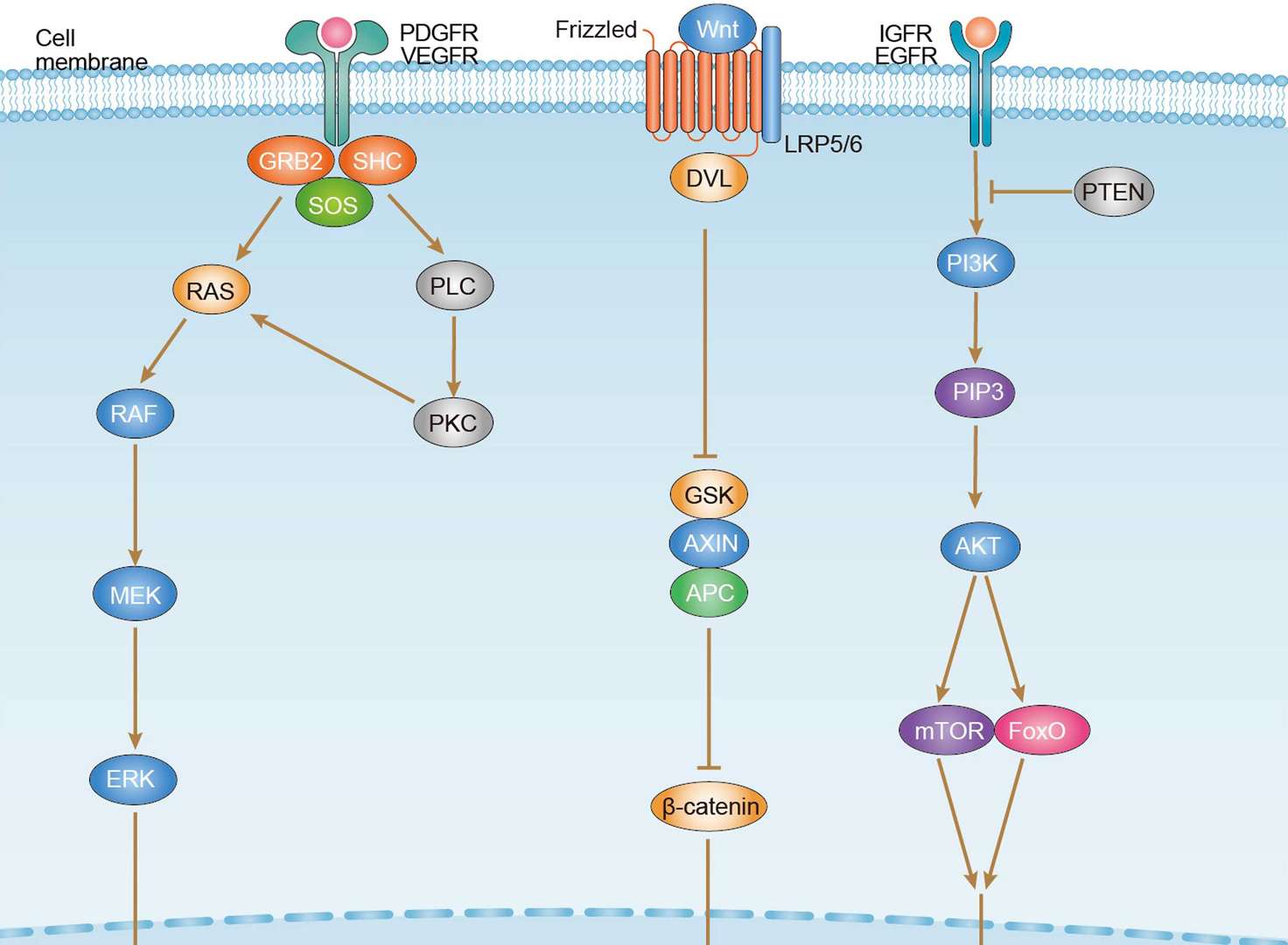 Hepatocellular Carcinoma
Hepatocellular Carcinoma
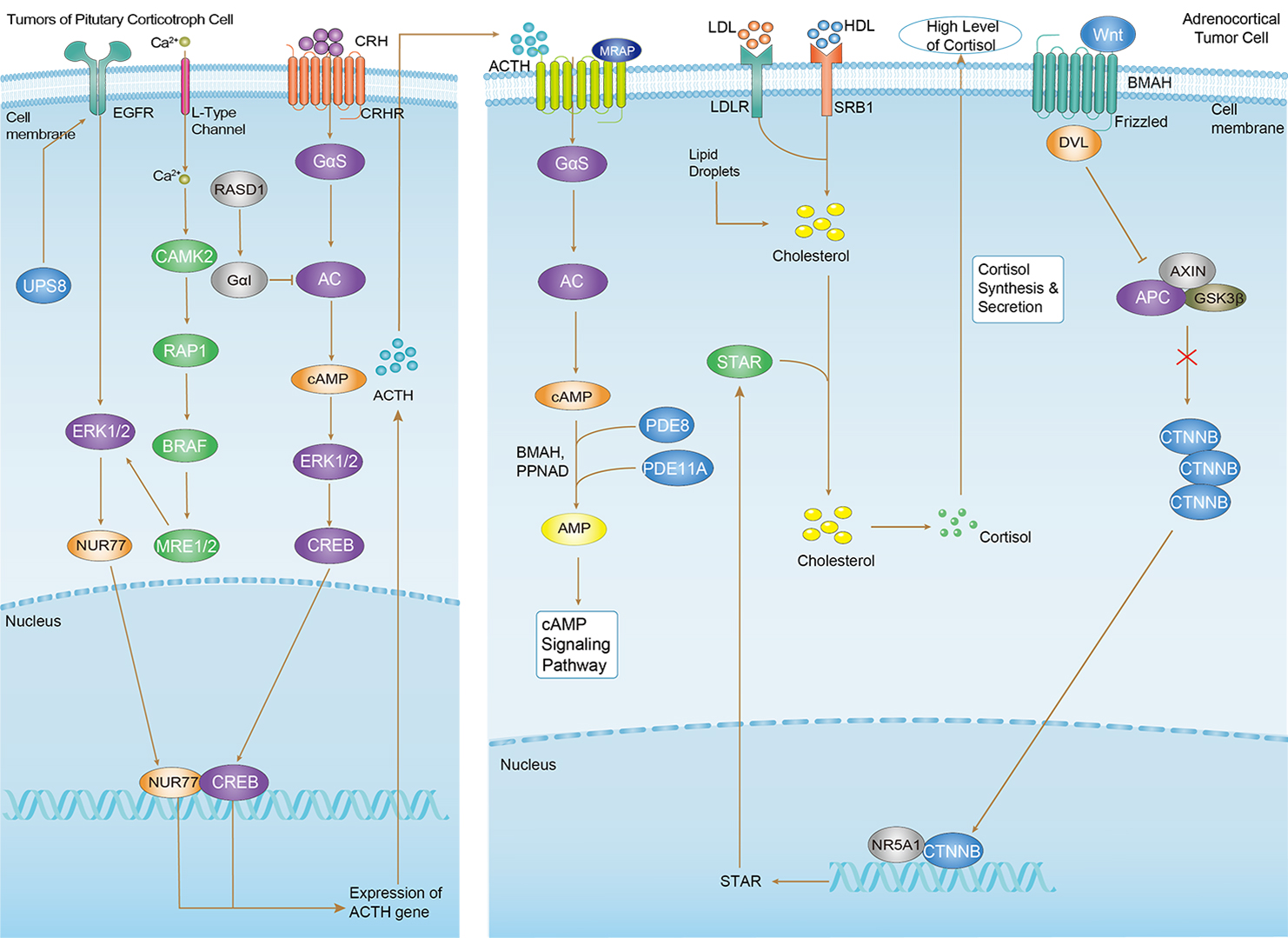 Cushing Syndrome
Cushing Syndrome
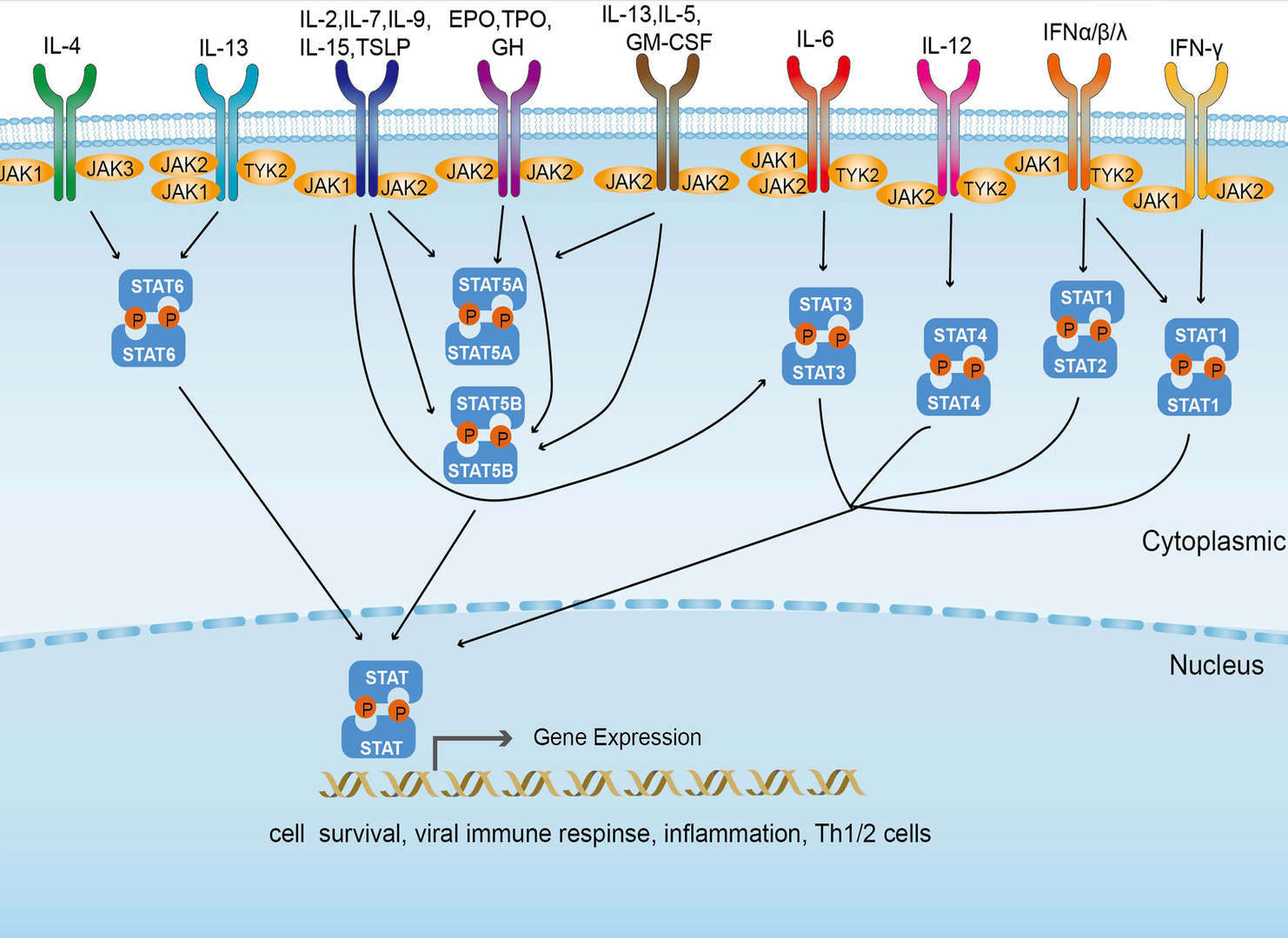 JAK-STAT Signaling Pathway
JAK-STAT Signaling Pathway